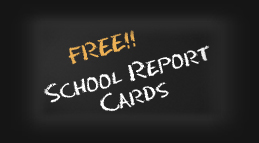Buying Foreclosed Homes
Buying Foreclosed Homes Tips
*Budget for the unseen.
-Repairs, new appliances, inspections, etc. all cost money. Be prepared to pay for them out of pocket.
*Never buy sight unseen.
-Even if you don’t live in the same state, hire someone you can trust to look at the property and pass information on to you.
*Check out the neighborhood.
-Is it where you want to live?
-Are there a lot of other foreclosures or is there high crime?
*How long has it been vacant?
-Is anyone keeping up the foreclosure? Even homes in the best condition will deteriorate when left vacant.
-Some agents go through programs like HomeSteps which requires foreclosures to be maintained (see information on HomeStep’s Good Neighbor Practices below)
*Was the home winterized?
-Are the pipes winterized and in working order? If not, part of your budget needs to be replacing cracked and damaged plumbing.
*Has the landscaping and exterior been kept up?
-Over-run landscaping can bring vermin, snakes and insects not commonly found on the property.
-Un-kept exteriors can lead to roof and siding damage that can affect the interior and cost more than expected to repair.
*Pay for an up-to-date inspection.
-Expect to pay between $300-$500 for one but if you are spending the time, effort and money on purchasing a home (foreclosed or not), spend the money on an inspection paid for by you.
*Buy a HUD home or one backed by a similar program (like Freddie Mac’s HomeSteps) because the properties are better protected and looked after.
*Do not expect a quick profit.
-Unless you put in the time, money and energy to fix up a foreclosure, do not expect to make a profit on a quick resale.
Buying Foreclosed Homes Myths
*Foreclosed homes sell for pennies on the dollar.
-Expect to see an average of 5% below market value with no more than 10% below in most cases. Banks have investors they answer to, so lowballing offers generally won’t get you the home.
*Most are heavily damaged or stripped bare.
-In reality, most foreclosed homes are in the same condition as other homes in that area provided someone regularly maintains the property.
*It’s too risky.
-While buying through an auction can be tricky, bank-owned homes have usually been cleared of debts, liens and other hidden costs. Closing costs associated with bank-owned homes are also in line with non-foreclosure home purchases.
*Accelerated Depreciation
-There is no reason to assume a foreclosed home will depreciate faster than if you bought a non-foreclosed home.
*Cash-Only Purchases
-When bought through a bank, foreclosed homes close similar to their non-foreclosure counterparts. You can still get a conventional loan on the property provided you meet your lender’s criteria for credit, income and the like.
Freddie Mac’s HomeSteps Difference
Team Gale maintains a level of quality in our work that Freddie Mac’s HomeSteps program also strives for. Their strict guidelines for agents and vendors are called “HomeSteps Good Neighbor Practices”
These practices help keep neighborhood values protected by:
*Keeping the foreclosed home secured
*Removing all trash from the interior and exterior
*Properly maintaining the landscape weekly
*Cleaning the exterior and interior
*Random inspections to make sure homes are cared for according to HomeSteps guidelines
*Regular training is provided for agents and property maintenance vendors to insure quality on all homes
*Agents can immediately address safety issues on their own
*HomeSteps Toll-Free Customer Hotline (1-800-972-7555) is available to answer all questions regarding their homes.
